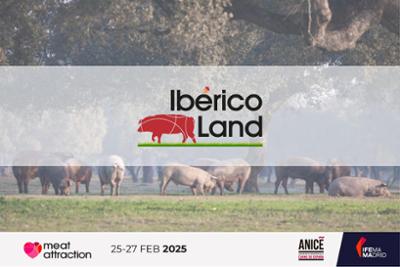
Ibérico Land 2025, Meat Attraction's platform for Iberian cured meat products in all channels and markets
IFEMA MADRID and ANICE brought together more than 60 operators of Iberian products to show them the possibilities offered by this unique space at the next edition of Meat Attraction.





